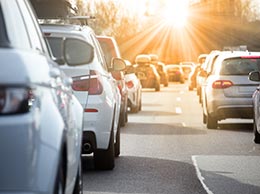
Personal Lines Insurance Products Explained: How to Determine What You Need
At the very least, if you own or lease a car, you’ll need car insurance, and if you own a home, you’ll need homeowners insurance. Any other policies you may need to consider above those two are based on your location, assets, lifestyle, and risk tolerance. This guide will walk you through key types of insurance, helping you make informed decisions based on your circumstances.
1. Do I Really Need Car Insurance?
Car insurance is not just a recommendation; it's often a legal requirement. Most states mandate some level of coverage, typically liability insurance, which covers damages to others in an accident you cause. Beyond legal requirements, having comprehensive or collision coverage can protect your vehicle against theft, vandalism, or natural disasters. Assess your driving habits, vehicle value, and financial ability to cover unexpected costs to determine the right level of coverage for you.
For more information on car insurance, read our Auto Insurance 101 guide.
2. Do I Really Need Home/Property Insurance?
Home or property insurance is essential for homeowners, as it safeguards one of your most significant investments. While not legally required, mortgage lenders typically insist on it. This insurance covers damage from perils like fire, theft, and severe weather, and can also protect against liability claims if someone gets injured on your property. Consider the replacement cost of your home, local risk factors, and personal belongings to ensure adequate coverage.
For more information on homeowners insurance, read our Homeowners Insurance 101 guide.
3. Do I Really Need Renter's Insurance?
Renters insurance is a crucial consideration for anyone living in rented accommodation. While your landlord's insurance covers the physical building, it doesn't protect your personal belongings. Renters insurance fills this gap, offering coverage for your possessions against risks like theft, fire, or water damage. In addition to protecting your belongings, renters insurance typically includes liability coverage. This means that if someone gets injured in your rented space, or if you accidentally cause damage to someone else's property, your policy can help cover legal expenses or claims against you.
For more information on renters insurance, read our Renters Insurance 101 guide.
4. Do I Really Need Life Insurance?
Life insurance is crucial for those with dependents or significant debts. It provides financial security to your loved ones in the event of your untimely death, covering expenses like funeral costs, mortgage payments, and education fees. If you're single with no dependents, you might not need life insurance immediately. However, if you have family relying on your income, it's an essential safety net.
For more information on life insurance, read our Life Insurance 101 guide.
5. Do I Really Need Umbrella Insurance?
Umbrella insurance serves as an extra layer of liability protection, kicking in when your other policies, like auto or home insurance, reach their limit. It's particularly beneficial if you have significant assets that could be targeted in a lawsuit. Consider an umbrella policy if you have substantial savings, own property, or engage in activities that increase your liability risk, such as volunteering or serving on a board.
For more information on umbrella insurance, read our Umbrella Insurance 101 guide.
6. Do I Really Need Flood Insurance?
Standard home insurance policies do not cover flood damage. If you live in a high-risk flood area, flood insurance might be required by your lender. Even in low to moderate-risk zones, it's worth considering due to the increasing unpredictability of weather patterns. Evaluate your geographical location and the likelihood of flooding to decide if this coverage is necessary.
For more information on flood insurance, read our Flood Insurance 101 guide.
7. Do I Really Need Jewelry Insurance?
While homeowners policies cover personal belongings, they often have limits on high-value items like jewelry. If you own valuable pieces, consider a separate jewelry insurance policy, which can offer protection against loss, theft, or damage. This is particularly important for items with sentimental or significant monetary value, ensuring they are covered at their full appraisal value.
For more information on jewelry insurance, read our Personal Articles Floater Insurance 101 guide.
8. Do I Really Need Insurance for My Boat and Recreational Vehicles?
Insurance for boats and recreational vehicles (RVs) is crucial for protecting against liability and physical damage. While not all states require boat insurance, marinas often do, and RV insurance is typically required in states where RV registration is mandatory. Consider the value of your boat or RV, usage frequency, and storage conditions to determine the appropriate coverage level.
For more information on boat insurance, read our Boat Insurance 101 guide. For more information on RV insurance, read our RV insurance 101 guide.
The right insurance coverage is highly individual, based on your assets, lifestyle, and risk tolerance. Careful evaluation of each insurance type will help you make informed decisions, ensuring peace of mind and financial security.
The contents of this article are for informational purposes only. You should not act or refrain from acting based on this information without first consulting a Goosehead licensed agent. We disclaim all liability for actions taken or not taken by you based on the contents of this article which is provided "as is." Goosehead makes no representation that this content is error-free.
Get a Quote


